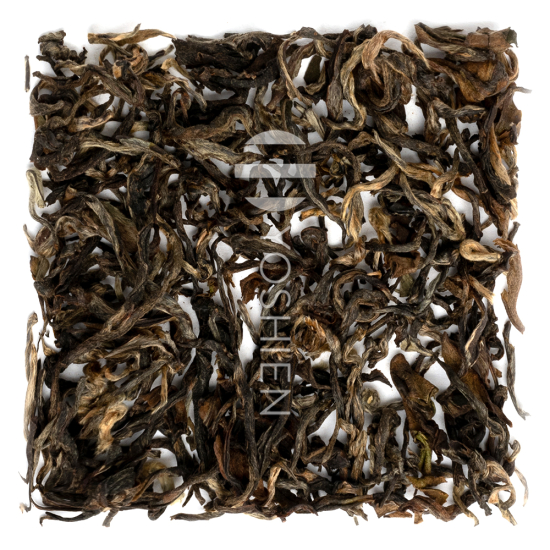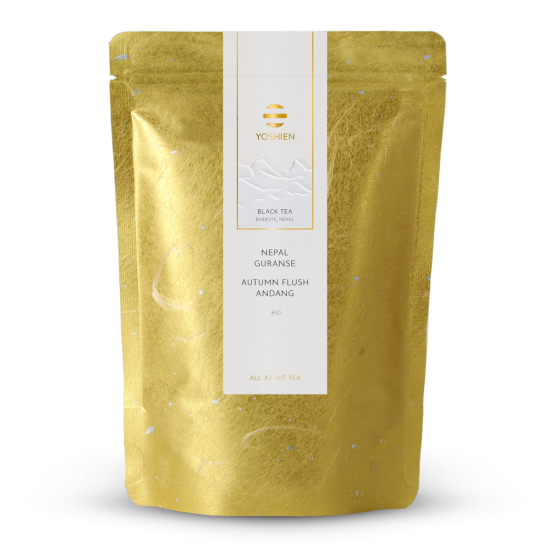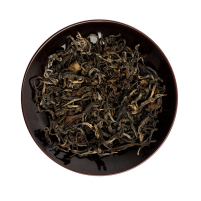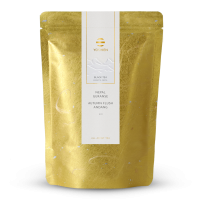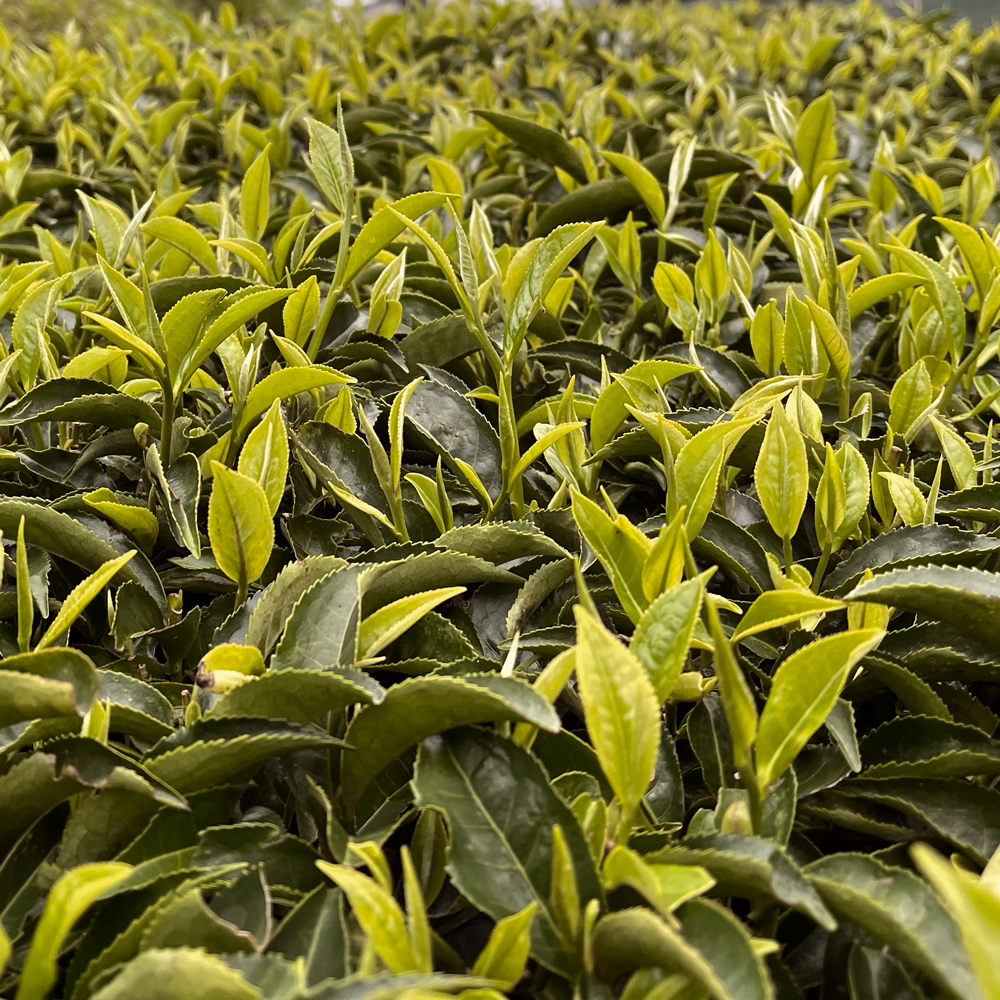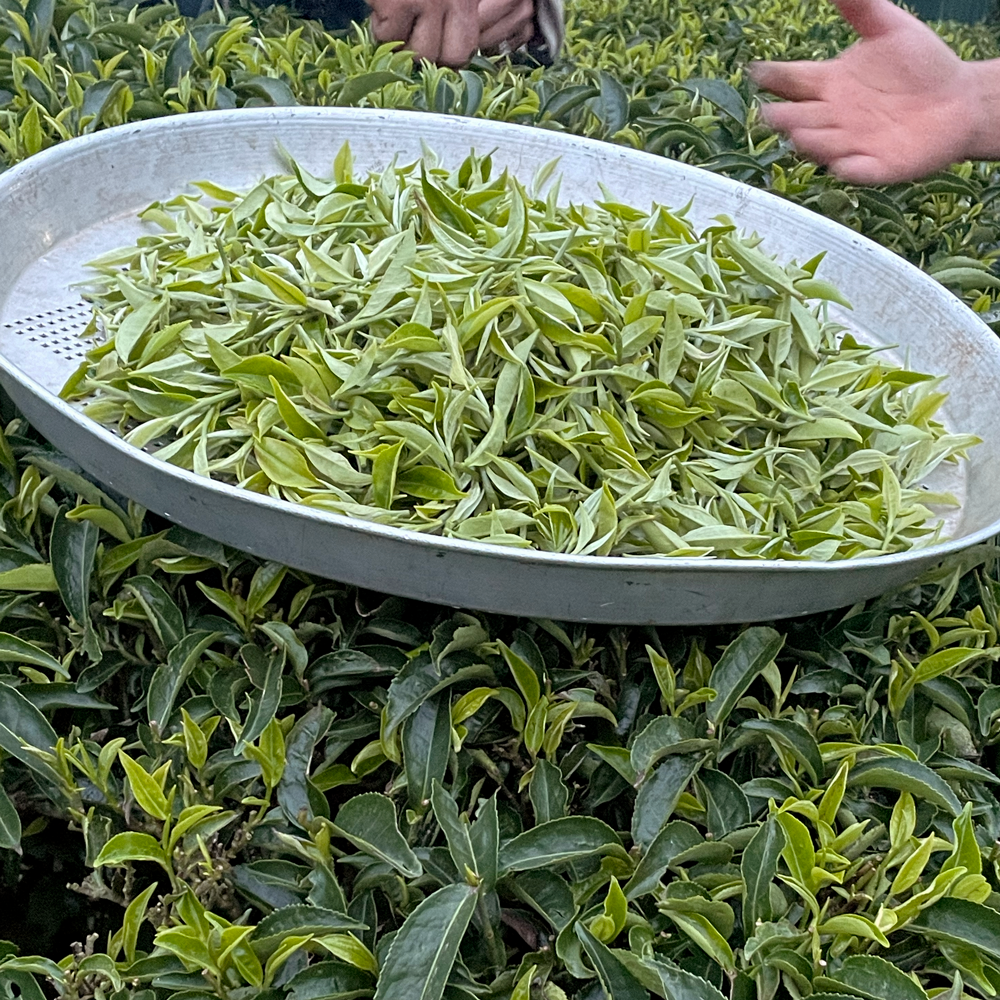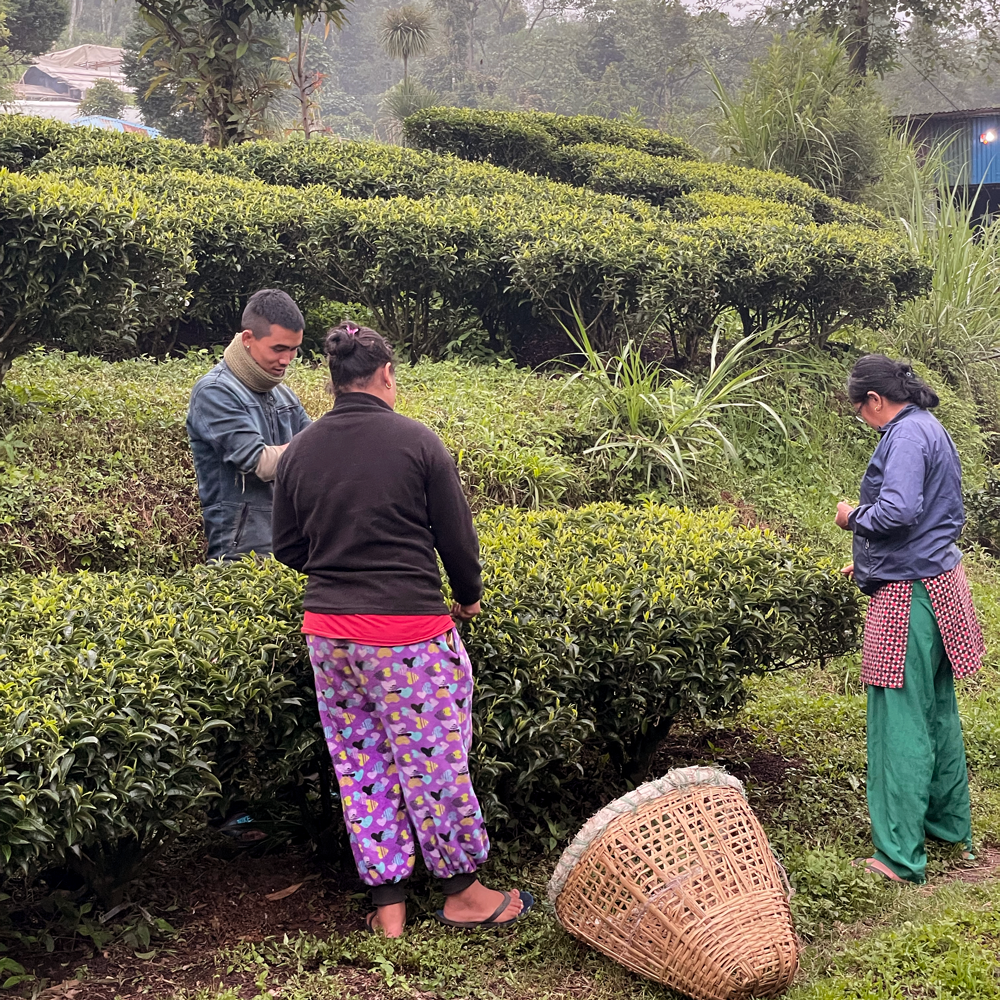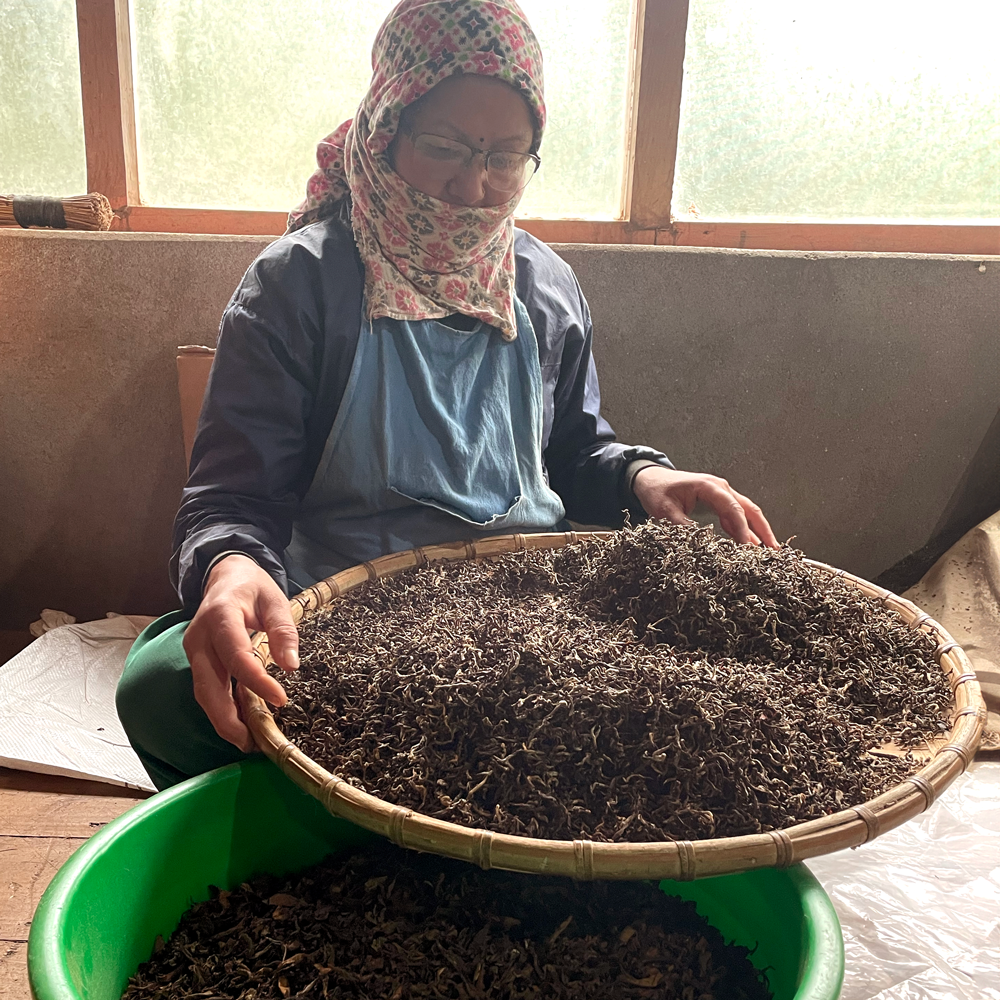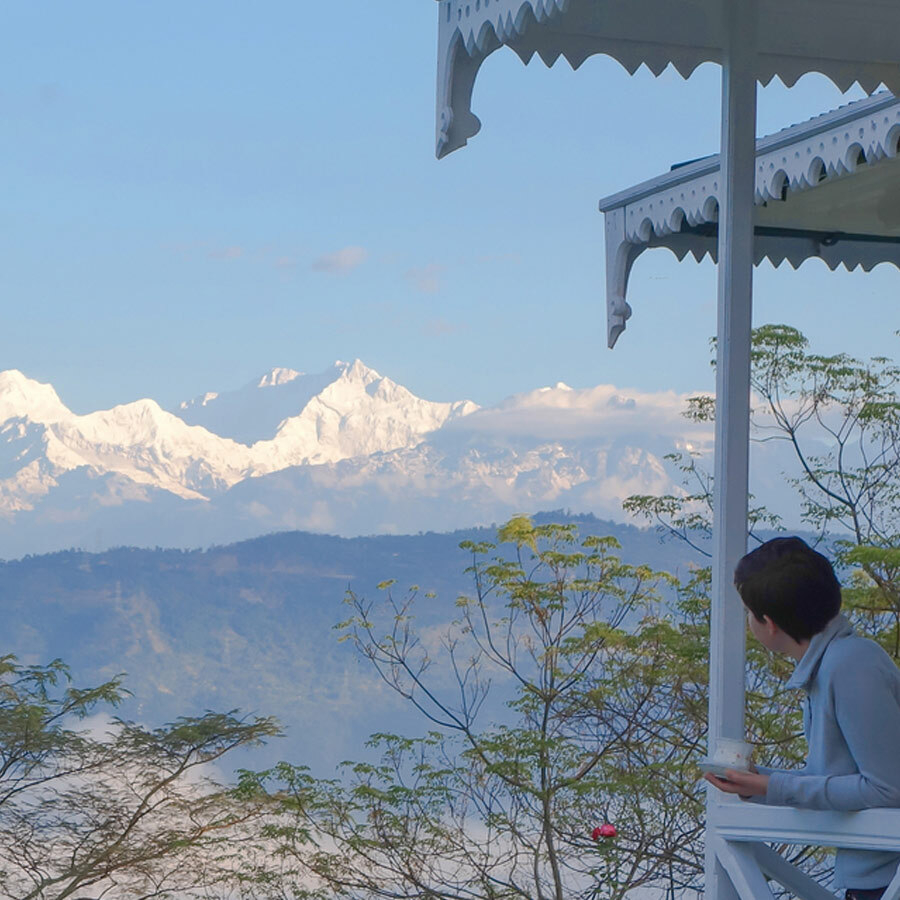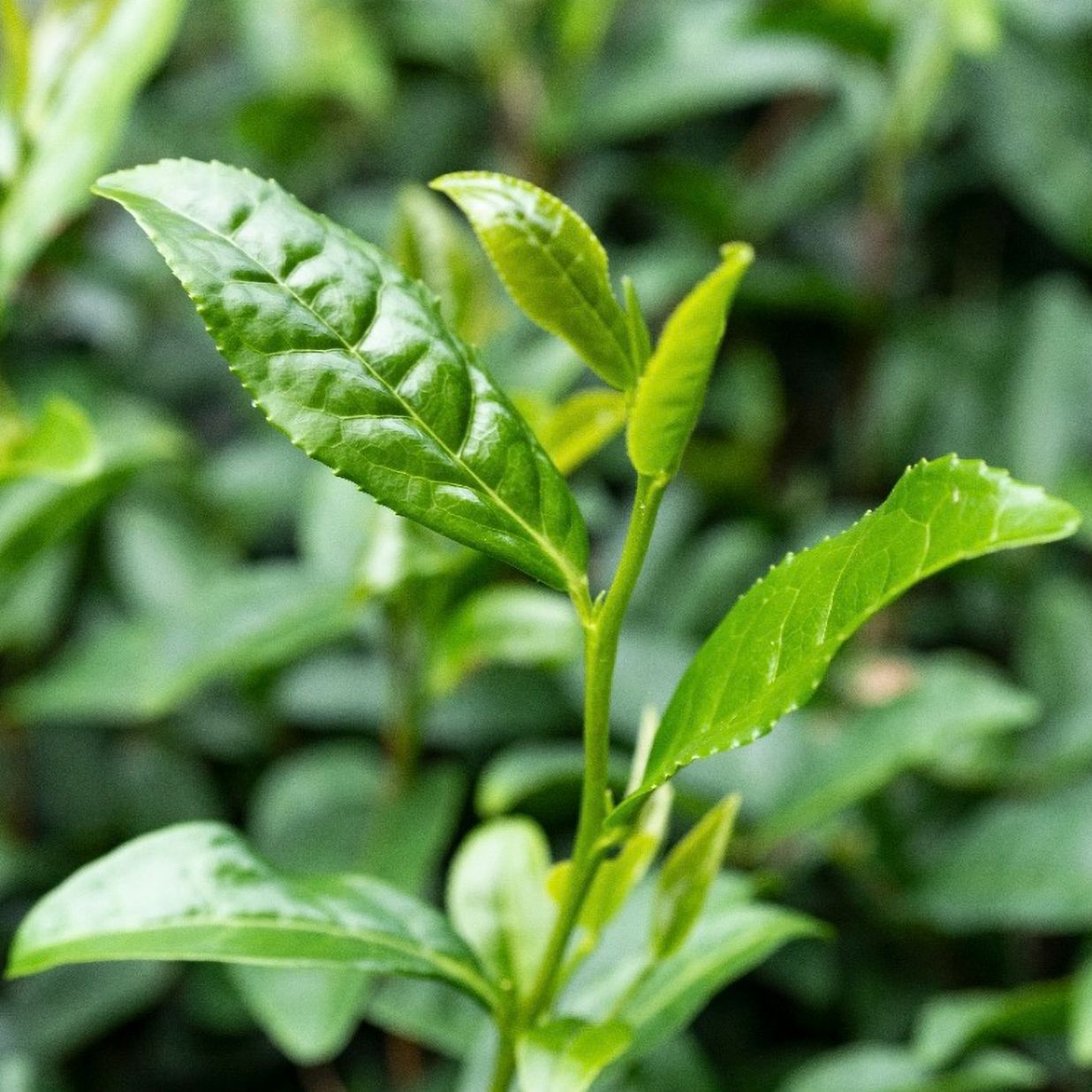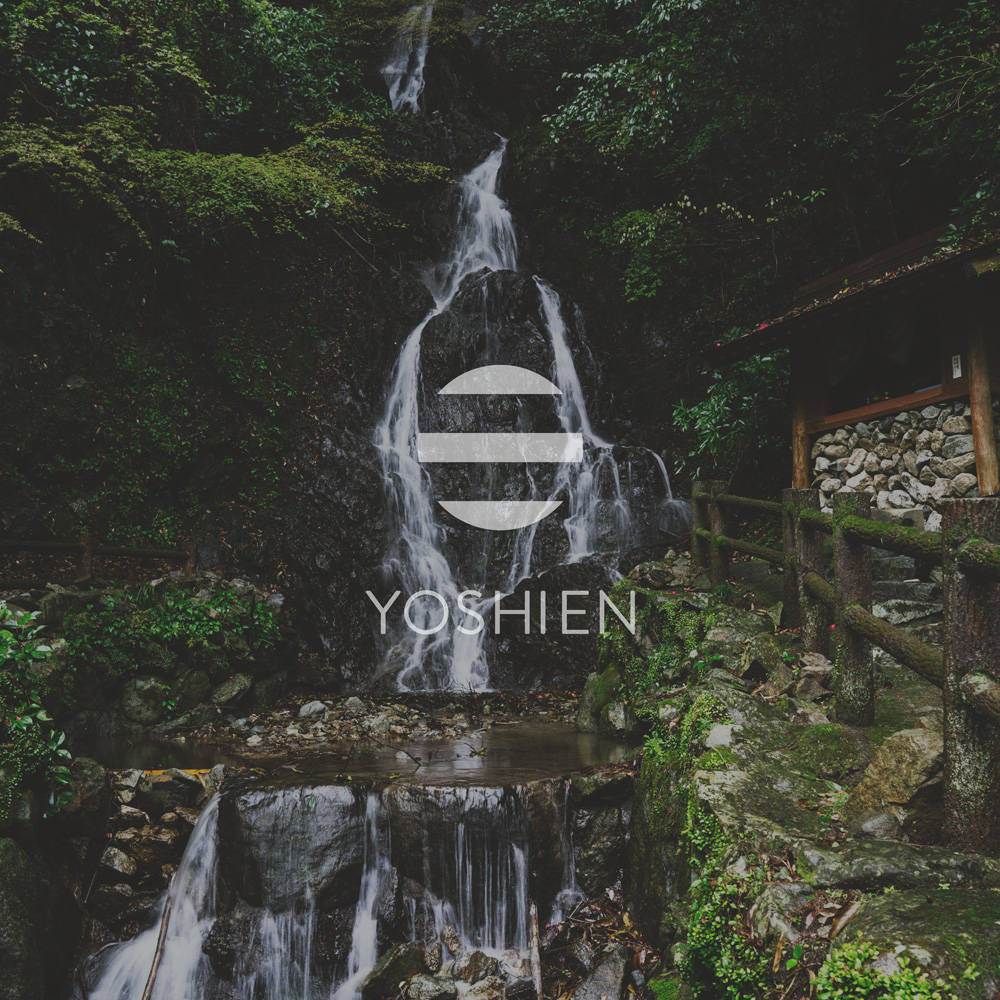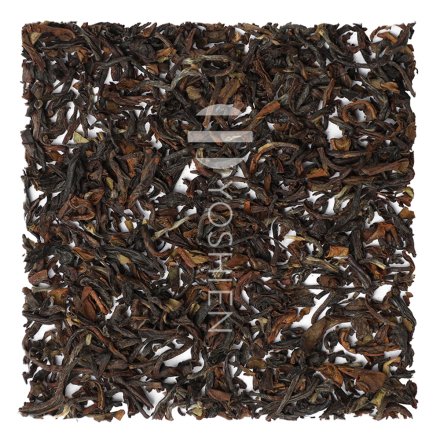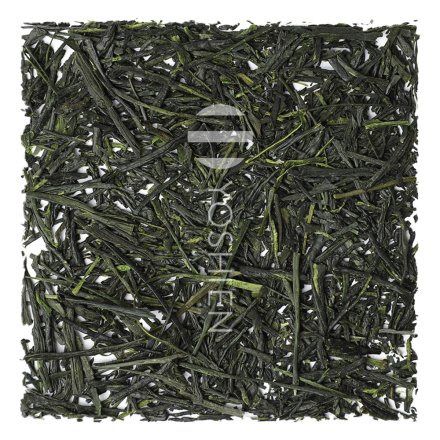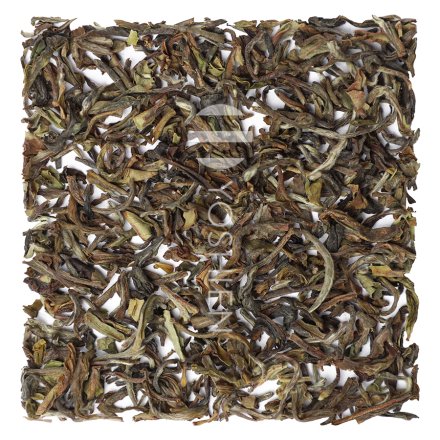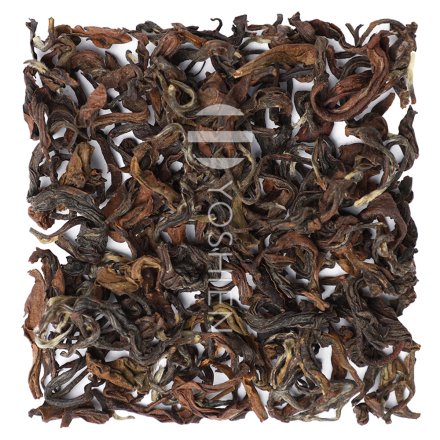Special features in location, cultivation, and processing
The name of the tea “Andang” originates from the regional Limbu dialect and refers to a related oolong tea which, like this black tea, undergoes a relatively long oxidation process.
The tea fields of the farm are among the highest in the world, located in the remote mountains of eastern Nepal at altitudes ranging from 1400-2800m above sea level. Due to the elevation, the area has an optimally stimulating climate with significant temperature differences between day and night. The high levels of rainfall are balanced by the thorough drainage of the slopes. The harvested tea plants are between 10 and 30 years old and have been cultivated under optimal ecological conditions, in line with EU organic standards, without the use of chemical pesticides or artificial fertilisers.
Processing follows the same steps as for the First Flush earlier in the year. Only the top bud and the first one or two leaves are hand-plucked (“two leaves and a bud”). After harvesting, the fresh leaves are gently spread out and left to wither for several hours, either in the open air or under controlled ventilation. Compared with black teas from other countries and regions, the withering stage here is unusually long, a reflection of the unique high-mountain terroir. This extended withering plays a crucial role in shaping the distinctive aromatic profile of Nepali black teas.
Once withering is complete, the leaves are rolled by machine, breaking open the cell walls and initiating oxidation. In the case of Nepal First Flush teas, oxidation is usually kept to a minimum in order to preserve the freshness and lightness of their aromas. Finally, the leaves are gently dried to lock in their texture and fine fragrance, before being graded and packed.
Single Origin
This tea is sourced from the above-mentioned tea farm in Barbote, Nepal, directly from the tea farmer.
Organic Certification

PL-EKO-01
Nicht-EU-Landwirtschaft




